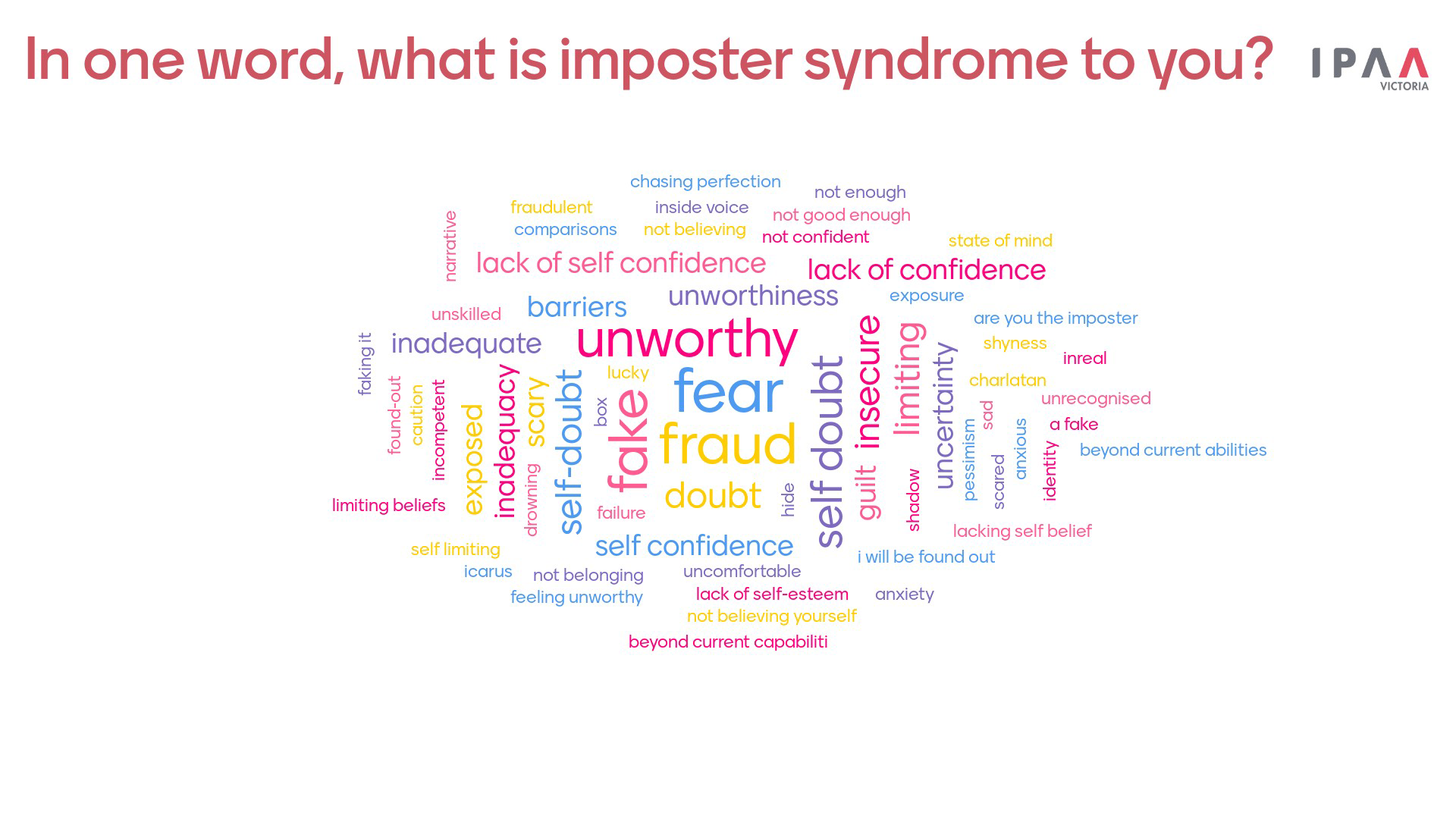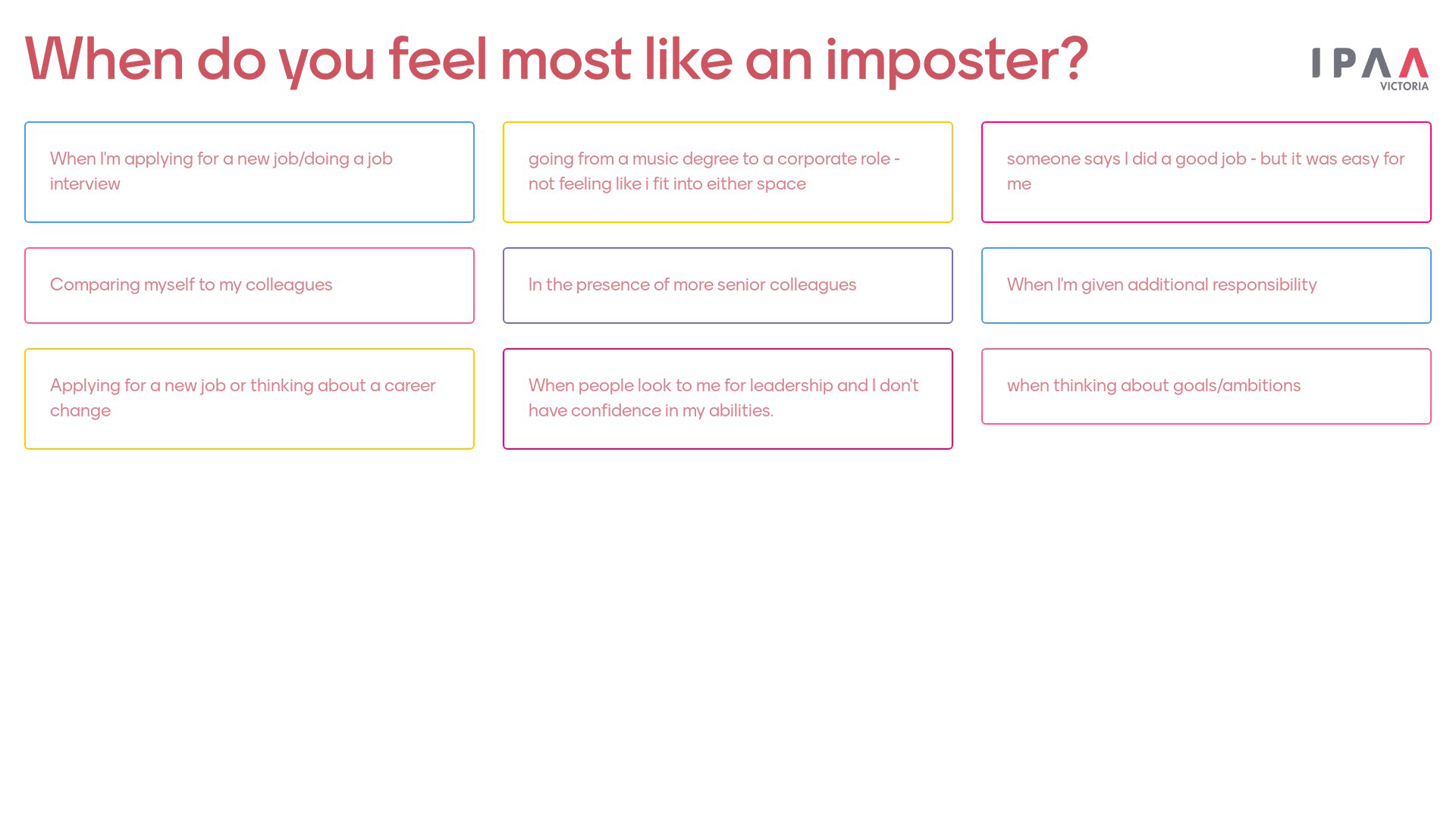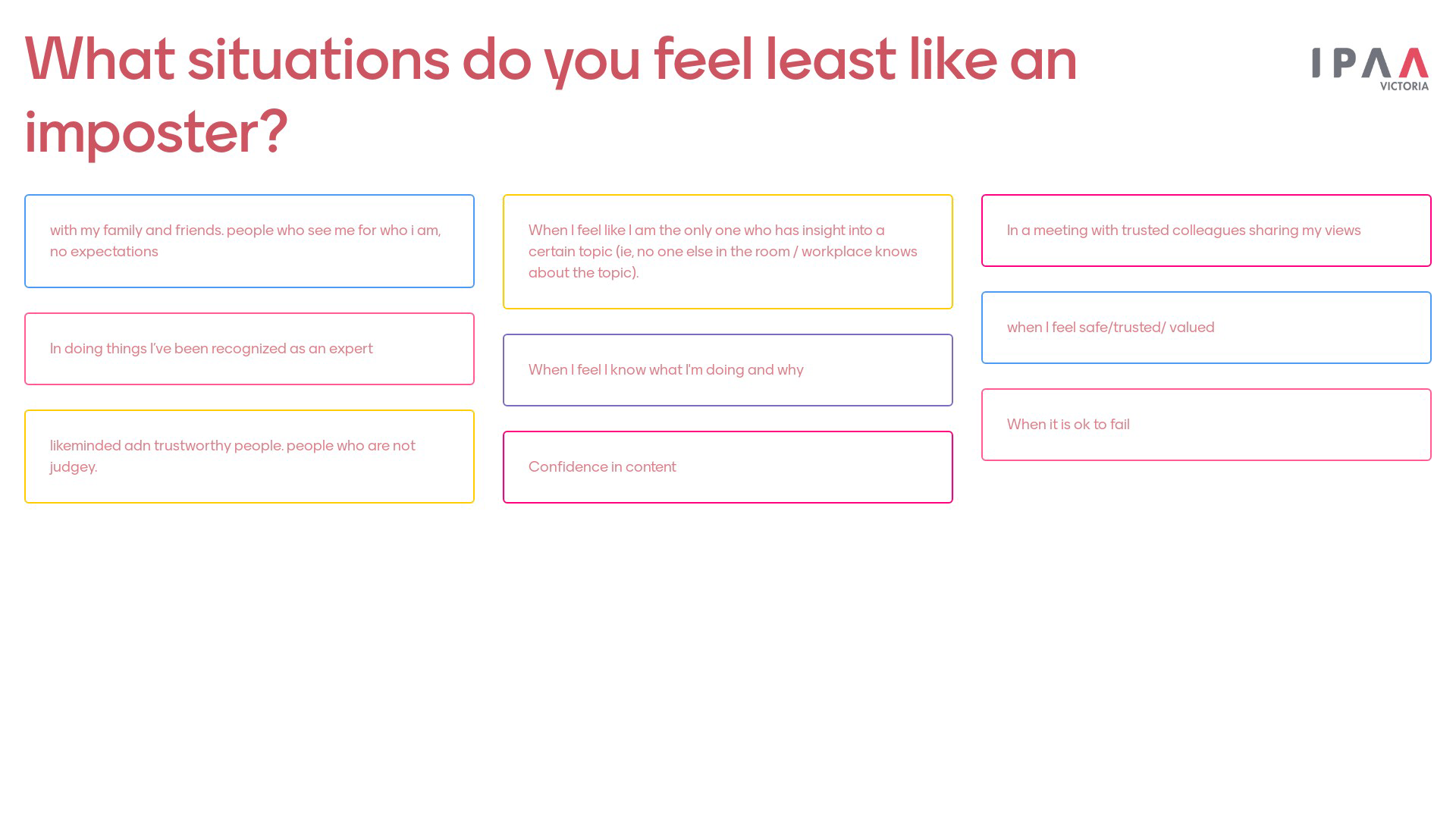Overcoming imposter syndrome
If you’ve ever felt like a fraud, you’re not alone. The Institute of Public Administration Australia (IPAA) Victoria division shares insights from a recent webinar on how to demystify and create space for discussing imposter syndrome.
Over 250 people joined online and listened to expert insights, tools and strategies shared by host and facilitator Will Babington, YIPAA committee member and general manager, Strategy and Business Intelligence, City of Casey, and speaker James Gallacher from Yellow Box Careers.
What is impostor syndrome?
After sharing some personal anecdotes, James commented that at the centre of imposter syndrome are the “feelings, thoughts and barriers to success”. Most people will wrestle with imposter syndrome at some point in their careers. A classic example is during the first few weeks of starting a new job. It can range from a short-term experience to a lifelong feeling.
“Feeling like a phoney. It’s as though at any moment you’re going to be found out as a fraud. It’s like you don’t belong where you are, or you only got there through luck.” – James Gallacher, Yellow Box Careers
James summarised imposter syndrome as “feeling like a phoney. It’s as though at any moment you’re going to be found out as a fraud. It’s like you don’t belong where you are, or you only got there through luck. You can talk about barriers, you talk about devaluing your worth, you undermine your experience or expertise, feeling like you need to be a perfectionist in order to deliver satisfactory work”.
Despite the negative connotations, James pointed out that feelings of imposter syndrome can be a great strength because it means being conscious of your abilities and can indicate a willingness to improve.
The 60-minute event was developed to provide participants with a deep dive into imposter syndrome and was built around three key concepts:
1. Understanding imposter syndrome: What is it? Who suffers from it and why?
2. Understanding the self: What are the triggers of imposter syndrome?
3. Practical personal tools: Ways to address competence and confidence issues that drive the feelings of imposter syndrome.
In one word, what is imposter syndrome to you?
Attendees were asked what imposter syndrome meant to them and common responses included ‘fake’, ‘fear’, ‘fraud’, ‘unworthy’, ‘lack of confidence’, and ‘inadequate’.

When do you feel most like an imposter?
Participants provided examples of when they most feel like an imposter, including when they are ‘attending interviews’, ‘being in front of experts’, ‘acting as an expert’, ‘acting in my manager’s role’ and highlighting the difference in perception between ourselves compared to how others view us (image on the left)

When do you feel least like an imposter?
“Failure doesn’t make you a fraud.” – James Gallacher, Yellow Box Careers
The most common responses related to being among trusted and supportive friends and loved ones. Preparedness emerged as a common thread, and James indicated that being prepared is the key to feeling more confident and competent. He later summed it up well by stating that “failure doesn’t make you a fraud”.

Strategies to combat imposter syndrome
James offered five main strategies to build confidence and self-esteem:
1. Make a list of reasons why you’re qualified for a particular role or the role you’re in.
2. Visualise what success looks like.
3. Remind yourself you are good at what you do. Ask for LinkedIn recommendations and own your personal lived experience and brand.
4. Mentoring – it’s an opportunity to seek practical advice from a senior leader in an organisation, or build your confidence by mentoring another colleague.
5. Volunteering – it’s a great way of discovering your inner expert.
